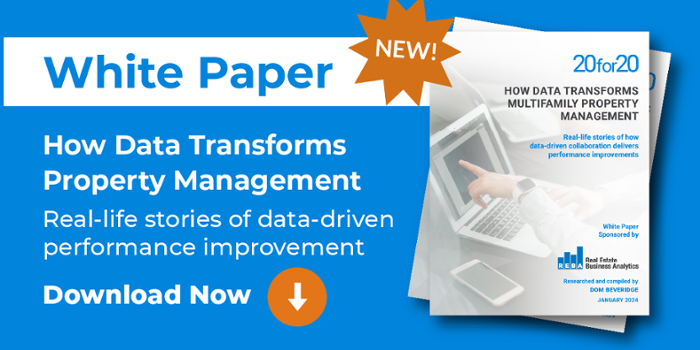
Last week, a couple of important events unfolded in the ongoing story of multifamily revenue management (RM). On Tuesday, a US Senate bill was introduced, mostly restating the illegality of price-fixing. Although this bill has received considerable attention, it goes nowhere near as far as a Colorado state bill that was presented to a committee hearing at the Colorado Capitol one day later.
Colorado bill HB24-1057: "Prohibit Algorithmic Devices Used for Rent Setting," aims to ban multifamily revenue management (RM) systems. I was in Denver to testify in opposition at the committee hearing and in this post (which will be a little longer than usual) I will detail what transpired at the hearing.
(For anyone wanting to listen to the hearing, the full audio starts at 2.25.24 on the session recording.)
What's bad about this bill
In the three minutes of testimony available to me, I made the following points in opposition to the bill:
- The bill was based entirely on the allegations in the pending lawsuit. Those allegations are unsubstantiated: there is no evidence of the alleged cartel pricing. Nor will there be, because—as we set out in last year's RM white paper—it is not only untrue that the multifamily industry is running a pricing cartel, it isn't even possible.
- The bill accuses landlords of "outsourcing" pricing to an algorithm. That is another mischaracterization of what RM systems do. The systems automate the process of setting prices, but it is still up to the landlord to set the strategy and the parameters of the algorithm, including the extent of the automation. And, of course, the landlord still owns every pricing decision the system makes. The decisions are automated, not outsourced.
- The automation point is important because it's to nobody's benefit to force landlords to price manually. Much of the benefit of RM comes from automation, which enables operators to price more frequently and be responsive to the market, which has made operators better at filling units. Turning off the automation would make apartments, on average, less occupied and more expensive than they are today.
- We should be aware of the long-term impact on affordability. While many states face a housing affordability crisis, as we demonstrated in last week's blog, current US data shows that supply is driving prices, not algorithms. We can only lower rents by increasing supply, which means encouraging development. RM usually delivers a revenue upside in the order of 5%. If operators were to turn off the algorithms, that 5% is not redistributed; it simply disappears because the lever that created the value is gone. 5% of revenue is more than enough to push projects below the feasibility threshold, meaning fewer projects will get built, slowing supply growth, worsening the affordability crisis rather than making it better.
How the hearing played out
The hearing was somewhat of a formality, as the bill is all but guaranteed to pass Colorado's highly progressive lower house. The testimonies (including mine) and the Q&A that followed are entered into the record as the bill moves to the Senate, where we can only hope it receives more balanced consideration.
During the session, the committee amended the bill in a few ways, most notably, it now specifically targets pricing algorithms that use nonpublic data. The intent of the bill is to preempt the outcome of the class-action lawsuits that have been in progress since October 2022. The rationale is that because antitrust cases can take years to resolve, Colorado would like to outlaw the practice now.
The problem with that rationale is that it makes a presumption of guilt on the part of both the software vendors and their customers. The Senate bill focuses on the illegal activity of collusion. Colorado's outlaws pricing algorithms that use competitor data based on the unsubstantiated assumption that they enable collusion (which they don't).
A clear example comes at 2.46.26 on the recording, when one of the representatives asks Rep Woodrow (the sponsor of the bill) about what the software is doing to prices in a specific market in Denver. Rep Woodrow very clearly states that the software aligns prices among competitors in the market, who are obliged to comply with the price recommendations "in fealty to the cartel."
Obviously, none of this is true: anyone familiar with the software knows that's not what it does. The committee nevertheless accepted the claim without challenge and passed the bill to the next stage.
David vs David
There are some important lessons in this hearing. The first is a point that was coincidentally made in Brad Hargreaves's latest Thesis Driven newsletter, "Five Things Real Estate Should Learn from Other Industries." Lesson #5 on that list is that real estate punches well below its weight in terms of advocacy.
We do a lot of it in multifamily, and we have excellent advocacy at the federal level. But legislation like this—which will likely have serious nationwide implications—is state-based and therefore left to local trade organizations. That generally works, but some of the most pernicious laws (think rent control) pass at the state level. When local governments pass legislation that affects national multifamily platforms (like this RM bill), the industry seems underpowered in its ability to mobilize.
The second observation is how the tone of the Q&A and several specific remarks seemed to hint at the sentiment driving this legislation: A deep suspicion of investment-grade multifamily development. Representatives and attorneys kept referring to "out-of-state" or "large financial institutions," suggesting housing would be better handled by smaller, local entities.
For example, one Representative described how a friend with a small portfolio of mostly single-family and duplexes in Colorado Springs walks other properties in the area to decide what price to charge for units. The Representative seemed adamant that this manual approach to pricing would be better than using algorithms, especially when the algorithms' operators are not based in Colorado.
I arrived at the hearing thinking that it would be helpful to explain what RM contributes to the industry and how its removal might hinder multifamily development. What I hadn't anticipated was that to a progressive legislature, that's a compelling reason to get rid of the software.
As one Denver-based developer told me at NMHC Annual the night before the hearing, "If Colorado really doesn't want people to build multifamily, there are better ways to do it than this. They could just use permitting."
As things stand, Colorado bill HB24-1057 looks likely to pass into law. If it does, the most popular revenue management systems will become illegal in Colorado (for as long as they continue to use nonpublic data). It's election year, and anti-RM legislation seems popular across much of the nation. If you're doing business in Colorado, this would be a good time to contact local trade organizations and elected officials.
Photo by John Bussell on Unsplash



